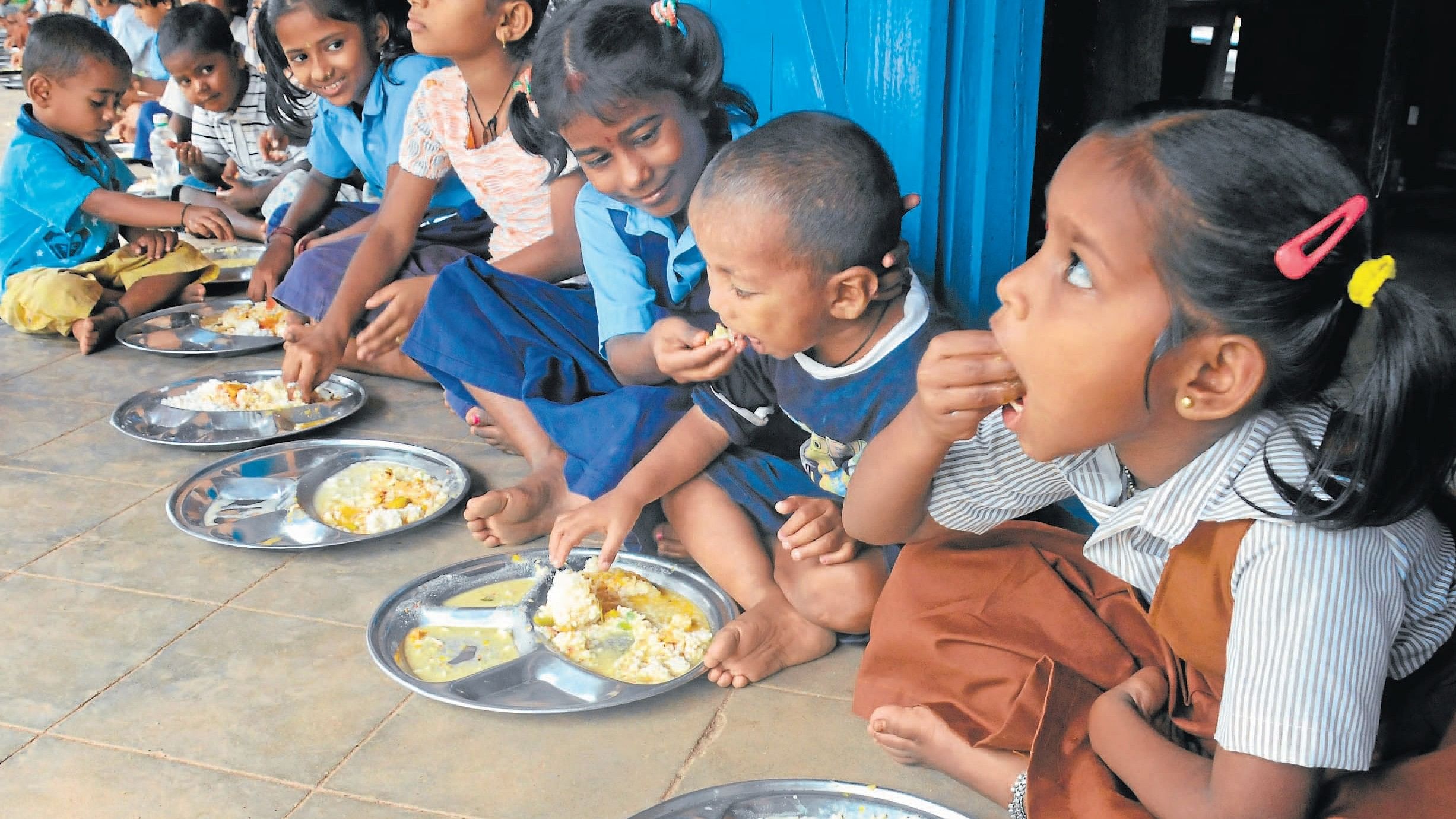
Representative image of children having their midday meals.
PTI File Photo
For over a month now, children in 65,000 Anganwadis in Karnataka have been denied eggs, which is their major source of nutrition, due to budgetary constraints. The Karnataka Cooperative Poultry Federation, which is charged with supplying the eggs, has discontinued the supply citing the high cost of eggs. According to Federation president D K Kantaraj, the rising price of eggs and the increasing cost of transportation had led to huge losses and the government had failed to respond to the request to revise procurement rates. Apparently, those who won the tender had to suffer losses as they had to pay the difference in price from their own pockets. Anganwadi workers have now been instructed by officers of the Department of Women and Child Development to procure eggs locally, but they have not been able to do much in the absence of an official order or any clarity on reimbursement of the expense. The government is required to supply eggs two times a week to children in the 0-6 years age group and for five days a week to moderately underweight children in the backward districts of Raichur, Bidar, Kalaburagi, Koppal and Yadgir. Eggs were introduced in the diet after several studies had flagged the malnutrition among children in Karnataka, especially in rural areas. A government study had found a significant reduction in malnutrition in the state’s most impoverished district, Yadgir, after the introduction of eggs in the mid-day meal scheme.
Admittedly, the Siddaramaiah-led Congress government is finding it difficult to make both ends meet, having presented a Rs 12,000-crore revenue deficit budget to fund the various promises made by the party during the elections, but the disruption in the supply of eggs had occurred during the previous BJP regime, too. Poor children do not appear to be the priority of any government.
Prices of vegetables and eggs tend to fluctuate throughout the year, and it is incumbent upon the government to factor this in and make adequate allocations well in advance, instead of depriving the children of nutrition. Women and Child Welfare Minister Laxmi Hebbalkar has come under criticism from her own party colleagues for neglecting her department and devoting much of her time to the politics of her home district, Belagavi. Against reports of rising malnutrition in the state, the scheme has given positive results wherever it was implemented. The minister should therefore take personal interest in ensuring that the supply of eggs is restored immediately. In addition, she should ensure that the scheme is extended to the entire state.